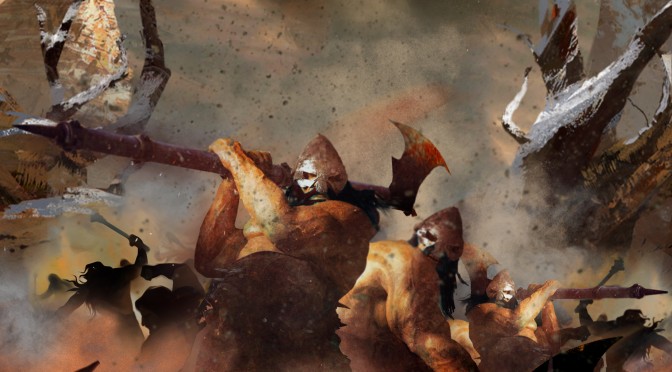In the reality we inhabit, it’s difficult to imagine a world where Darwinism hasn’t been pushed by academia until it undergirds nearly every creative work, dominates every alleged discussion of science, and permeates the thinking of so many people (even those considered religious). But in the ancient world, it’s unlikely anyone promoted an idea that life originated, then evolved, by random accident–either according to the Big Bang process as conceptualized by atheists (“first there was nothing, then it exploded”); or via pan-spermia (“life originated in some far-away solar system according to Darwin’s model–therefore you can’t examine any evidence–then Earth was seeded by the resulting advanced life forms as an experiment”).
Whether or not humanity was entirely composed of superstitious simpletons, what evidence has survived suggests that supernatural creation was a mainstream concept and supernatural intervention was often expected.
Supernatural intervention is commonplace in the many surviving variations of the Greek, Roman, and Norse myths. Other mythologies are more difficult to research, but share most of the same themes. And, though it was rare for the Israelites to witness a physical manifestation of their God, they frequently begged His intervention, and often got it.
Initially (when Gods & Proxies was the first draft of a screenplay), I had characters with a 20th/21st Century attitude (agnostic, leaning toward atheist). It was an easy mistake to make, because you can’t go anywhere in the present day without encountering Darwinist worldviews, and assumptions based on the work of his zealous disciples. It’s only natural for a writer wanting to include life-like characters to craft them so that they wouldn’t seem out-of-place in the real world.
Which takes me back to my point: the real world now is perceived much differently than the real world was thousands of years ago.
It’s a major blunder to transpose modern values and attitudes into a period piece with no consideration for credibility. We see it in movies, TV shows, and books all the time. It’s a lazy and rather arrogant blunder. That’s why, when adapting the story into prose form, that anachronistic worldview had to go.
That said, human nature hasn’t changed, at all. Certainly the sophistication of deception has advanced considerably from ancient times, but not what deception is perpetrated to accomplish (abandonment of the Creator God, a hate for the truth and what is right, debauchery, and a love affair with lies).
There is no political correlation between what happens in our time and what happens in Gods & Proxies. Any flavor of social conflict you may find in the book is not inspired by current controversy, but by the clues from the ancient historical records, influenced by what the author understands about human nature.


